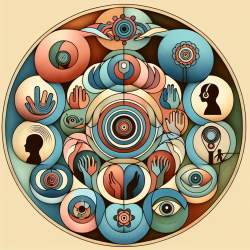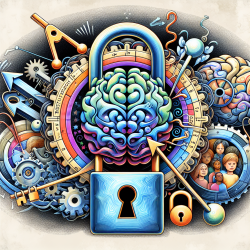Child maltreatment (CM) is a pervasive issue with far-reaching consequences. The study titled "Homotypical and Heterotypical Intergenerational Continuity of Child Maltreatment" sheds light on how CM is transmitted across generations. This research offers valuable insights that practitioners can leverage to improve intervention strategies and outcomes for affected families.
The Study at a Glance
The research explores two forms of intergenerational continuity of CM: homotypical and heterotypical. Homotypical continuity refers to the same type of maltreatment occurring in both generations, while heterotypical involves different types across generations. The study utilized data from families involved with child protection services in Montreal, Canada, spanning over 40 years.
Key Findings
- Homotypical Continuity: The study found significant homotypical continuity in physical abuse on the paternal side, sexual abuse on the maternal side, and exposure to domestic violence on the maternal side.
- Heterotypical Continuity: Although less prevalent, heterotypical continuity was observed, highlighting the complexity of CM transmission.
- Paternal Influence: Fathers' histories of abandonment were linked to increased risks of neglect and sexual abuse in their children.
- Mothers' Role: Maternal histories of exposure to domestic violence were associated with similar risks in their children.
Implications for Practice
This study underscores the importance of understanding both homotypical and heterotypical patterns to develop effective interventions. Here are some ways practitioners can apply these findings:
- Differentiated Interventions: Tailor interventions based on the specific type of CM history present in families. For instance, focus on breaking cycles of physical abuse in father-son dyads and addressing sexual abuse in mother-daughter relationships.
- Paternal Engagement: Include fathers in intervention programs to address their unique influence on CM transmission.
- Treating Trauma: Provide trauma-informed care to help parents process their own experiences of maltreatment and develop healthier parenting practices.
- Cultural Sensitivity: Consider cultural factors that may influence CM patterns and tailor interventions accordingly.
The Path Forward
The findings highlight the need for continued research into the mechanisms driving intergenerational CM. Practitioners are encouraged to stay informed about emerging studies and integrate new insights into their practice. By doing so, they can contribute to breaking the cycle of maltreatment and fostering resilience in affected families.










